











Phoebe Bailey*
Bethel African Methodist Episcopal Church
Mary Boots
Brightside Opportunities Center
Cheryl Holland-Jones
Crispus Attucks Community Center
Mary Cunningham
Mika Cox McDougall
Doris Johnson
Jan Kristensen, MS, RD, LDN
Imani Edu-Tainers African Dance Company
Ivonne Lambie, MAT
Kelly Edwards, BS
Adam Miller, BS
Schirlyn Kamara
Sonya Mann-McFarlane, M.Ed
Elizabeth McGill
Rosemary Search, RN, BSN
Gussie Travis
Heather Wilson
Robin Woodard
Jacqui Zimmerman, RD, LDN

We are grateful to the individuals who shared their expertise, recipes and love for cooking with us. This book was a collaborative effort, made possible by many people in the African American community in Lancaster County, various community groups, and church congregations. A special thanks to all who shared recipes, ideas, and tips for this book. In the interest of space and due to an overwhelming response, not all submitted recipes and tips were included in the final version.
The nutrient analysis for the recipes was done by a registered dietitian using FoodWorks Version 9.0 copyright 2007. Nutrient values were rounded according to federal rules for declaring nutrients the same rules used for food labeling. Please consider the nutrient values as estimates with some degree of variation possible depending on the specific brand names of ingredients used. Optional ingredients were not included in the analysis. Where two or more ingredients are suggested, the first was used in the analysis. Also, when the number of servings for a recipe appears as a range (for example, 4 to 6 servings), the nutrient analysis applies to the per person portion for the first number (i.e., per person for 4 servings).
Please direct any questions about this publication to the Wellness Center at (717) 544-3138

*Phoebe Bailey is a local cookbook author and member of the Bethel African Methodist Episcopal Church. Her cookbook, An African American Cookbook: Traditional and Other Favorite Recipes, is a wonderful collection of traditional recipes and food memories collected from members of the local African American community in Lancaster County. Some of these recipes were contributed and modified for use in this book.

Good food is one of the great pleasures of life and is often at the center of family traditions and gatherings. This is true for most cultures, including African Americans. Unfortunately, the foods that are often found to be the most “comforting” and which are often present at social gatherings can also be high in fat, calories, and salt. Great food that is comforting and enjoyable does not have to be unhealthy. This is an important fact since 4 out of the 5 leading causes of death among African Americans: heart disease, cancer, diabetes and stroke, can be prevented or managed with some simple lifestyle changes, including choosing healthier foods and making a point to be more active (CDC, 2005).
The goal of this cookbook is to bring you a variety of traditional African American recipes that have been “made-over” to contain less fat, sugar, and sodium. The recipes have been gathered from members of the African American community in Lancaster County, including local cookbook author Phoebe Bailey. This cookbook is not only about the food, it’s about leading your family down a path towards better health. Helpful tips about making healthy changes in your eating habits and lifestyle are included throughout the book.
Good food can still be at the center of your family traditions and gatherings, just in a healthier form. Adapting your recipes and making a point to be more active will ensure that you have many more healthy, vital years to spend with your loved ones creating new traditions to pass down through the generations!


The information in this cookbook is geared toward the general public of adults and children over age two. It is not intended as a substitute for consulting with your physician or other qualified healthcare professional.


Choosing healthy foods every day is important for your overall health. Many of the leading causes of death, including heart disease and cancer, can be managed or prevented with some simple changes to your diet. These changes will be easier if you learn how to make your favorite recipes healthier instead of giving up all of the foods that you love. The following is a list of some ways that you can give your recipes a healthy makeover.
You can often reduce the amount of fat, sugar, and sodium in a recipe without losing the flavor. By cutting fat and sugar, you also cut calories, which is important for weight management. Here are some general ways to do this:
• Fat. Use half the amount of butter, or oil; replace the other half with unsweetened applesauce, mashed banana, or prune puree. If a recipe calls for 1 cup of shredded cheese, use 1/2 cup instead.
• Sugar. Reduce the amount of sugar by one-third to one-half of the amount required. Try adding or increasing the amount of seasonings that enhance the sweetness of foods, like spices (such as cinnamon, cloves, allspice and nutmeg) or flavorings (such as vanilla or almond extract).
• Sodium. Reduce salt by one-half in baked goods that do not require yeast. However, for bread
products made with yeast, 1/4 teaspoon of salt per cup of flour is necessary for adequate rising of dough. For most main dishes, salads, soups, and other foods, you can reduce the salt by onehalf or eliminate it completely.
In some recipes, you can omit an ingredient altogether.
• Skip the high calorie toppings like frosting, whipped cream, coconut, and chopped nuts.
• Leave out optional condiments like pickles, olives, butter, mayonnaise, syrup, jelly and mustard, which add unnecessary sodium, fat, sugar and/or calories.
Sometimes, changing the cooking method of a recipe can significantly reduce calories and fat. This is especially true in the case of deep frying, which adds a lot of unnecessary fat and calories to a recipe.
• Choose recipes that rely on baking, broiling, poaching, braising, grilling, and steaming instead of frying.
• For recipes that are usually fried, try baking instead. Lightly spraying the top of the food with a non-stick cooking spray may help to give food the crispier crust you would have achieved with the deep-frying method.
• For recipes that require sautéing, try using a smaller amount of oil, or substitute with a fat-free liquid

such as broth, or non-stick cooking spray. Using good non-stick pans also helps to minimize the amount of fat needed to prevent sticking.
• For recipes that require basting the meat or vegetables in oil or drippings, baste with wine, fruit juice, low sodium vegetable juice, or low-sodium broth instead.
Some recipes are difficult to modify, and as a result, may still be high in sugar, fat, or sodium despite all of your efforts to change them. In this case, simply choose to eat a smaller portion. Remember that balance is important, so when you do serve a high fat or high calorie item, offer plenty of healthy accompaniments, like fresh vegetables and fruit with the meal.
Healthy substitutions not only reduce the amount of fat, calories, and/or sodium in your recipes, but they can also boost the nutritional content. Here is a more comprehensive list of some healthy substitutions. Not every substitution will work in all recipes, but they are helpful options.
References and Resources: Mayo Foundation for Medical Education and Research. Recipe Makeovers: 5 Ways to Make Your Recipes Healthier & Ingredient Substitution: Make the Switch for Healthier Recipes. www.mayoclinic.com.


When your recipe calls for: Try this instead:
All purpose flour

Canned soups, sauces, and vegetables
Cheese
Dry Bread Crumbs
Eggs
Enriched Pasta
Evaporated Milk or
• Whole wheat flour or white whole wheat flour for half the amount of the all purpose flour.
• Or try Whole Wheat Pastry Flour, a softer wheat flour that you can use to replace the entire amount of all purpose flour in quick breads and muffins (not in recipes calling for yeast)
• Reduced fat and sodium varieties, no-salt added canned vegetables
• 2% or 1.5% reduced fat cheese, or part skim variety. You may be able to use less than what is called for if you choose a stronger flavored cheese like “sharp” cheese.
• Rolled oats, crushed bran or whole wheat cereal, whole wheat bread crumbs.
• Make your own bread crumbs by processing a piece of whole grain bread or toast in a food processor.
• 2 egg whites or 1/4 cup egg substitute for each whole egg
• Whole wheat or whole grain blend pasta
• Evaporated skim (fat-free) milk or sweetened condensed milk Fat-free sweetened condensed milk
Fruit canned in heavy syrup
Full-fat cream cheese
Full-fat sour cream
Ground Beef
Heavy Cream
Mayonnaise
Seasoning salts such as garlic salt,
• Fruit canned in own juices, water or light syrup
• Fresh Fruit
• Fat-free, low-fat cream cheese or Neufchatel cheese
• Homemade yogurt cheese: Line a strainer with cheese cloth or paper towels and place over a bowl. Spoon in fat-free plain yogurt and place in the refrigerator for several hours or overnight.
• Fat-free or low-fat sour cream, plain non-fat yogurt
• Lean or extra lean ground beef, lean ground turkey, or cooked beans
• Evaporated skim milk or fat-free half and half
• For thickening soups, try cooked, pureed vegetables
• Low-fat mayonnaise and/or replace part of the mayonnaise with plain non-fat yogurt
• Salt-free herb blends; fresh herbs, garlic or onion; onion salt, or celery salt garlic or onion powder, celery seed
White Bread
White Rice, cooked
Whole milk
• Whole wheat bread
• Cooked brown rice, wild rice, bulgur, pearled barley
• Skim (fat-free) or 1% (low-fat) milk







Experiment with using other fruits in place of the blueberries, such as sliced strawberries, diced peaches, grated apple, or mashed bananas. Or, top the pancakes with sliced fruit or frozen fruit that has been thawed. To add some vegetables to your breakfast use 1⁄2 cup cooked, mashed sweet potato or cooked, canned pumpkin in place of the berries.

Serving size 1 pancake (3-inch)
Calories 95
Protein 4 g
Carbohydrate 15 g
Dietary fiber 2 g
Total fat 2.5 g
Saturated fat 0 g
Trans fat 0 g
Cholesterol 20 mg
Sodium 100 mg

Pancake mixes tend to be very high in sodium and some may contain trans fat. Here is a much healthier version that you can make from scratch. This version is rich in whole grains. Make an extra batch and freeze the cooked pancakes for quick breakfasts any day of the week!
1 large egg (or 2 large egg whites)
1 tablespoon canola oil
11⁄4 cups fat-free milk
1⁄2 teaspoon vanilla extract
3⁄4 cup whole wheat flour
1⁄3 cup whole grain yellow corn meal
1⁄3 cup quick oats
1⁄3 cup toasted wheat germ
2 teaspoons baking powder
1 tablespoon sugar
1⁄2 teaspoon canola oil
3⁄4 cup blueberries, fresh or frozen (slightly thawed)
1. In a medium bowl, whisk egg. Add next 9 ingredients in the list (through sugar). Mix just until dry ingredients are moistened. Allow batter to sit 3 minutes.
2. Heat 1/2 teaspoon oil in a nonstick skillet or electric fry pan over moderate heat (300° F).
3. Stir blueberries into batter. For each pancake, use a 1/4 cup measure to scoop batter and pour onto heated skillet. Cook until browned on bottom side and batter appears dry around the edges of the pancakes. Flip and cook on the other side until golden brown. Remove from skillet and keep warm.

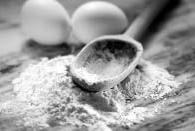


Try some of these low-fat toppings for your biscuits instead of butter: Light tub margarine with no trans fat, low or no-sugaradded fruit preserves or jam, or a light drizzle of honey. Turn this recipe into a healthier version of a classic dessert by topping with fresh cut strawberries mixed with a small amount of sugar and a dollop of light whipped cream.
Serving size 1 biscuit
Calories 130
Protein 3 g
Carbohydrate 18 g
Dietary fiber 2 g
Total fat 5 g
Saturated fat 0 g
Trans fat 0 g
Cholesterol 0 mg
Sodium 170 mg


Making a switch from shortening to canola oil means that these biscuits contain a healthier kind of fat. Shortening contains trans fats and a high proportion of saturated fats which raise cholesterol levels and increases risk for heart disease. The combination of canola oil and whole grain gives you a biscuit that is delicious and better for your heart!
1 cup all-purpose flour
1 cup whole wheat flour (spoon flour into cup, then level it)
2 teaspoons baking powder
1⁄4 teaspoon baking soda
1⁄4 teaspoon salt
2 tablespoons white sugar
2⁄3 cup cultured low fat (1% fat) or non-fat buttermilk
1⁄4 cup canola oil
1. Preheat oven to 450° F.
2. In medium bowl, combine flour, baking powder, baking soda, salt, and sugar.
3. In small bowl, stir together buttermilk and oil. Pour over flour mixture and stir until well mixed.
4. On lightly floured surface, knead dough gently for 15-20 strokes. Roll or pat dough to 3/4-inch thickness. Cut with 2-inch biscuit or cookie cutter, dipping cutter in flour between cuts. Transfer biscuits to an ungreased baking sheet.
5. Bake for 12 minutes or until golden brown. Serve warm.

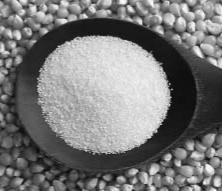

Try adding 1 cup of thawed frozen corn or leftover cooked fresh corn to this recipe as a variation. Fold in corn after combining the wet ingredients with the dry.


Saturated
Trans
Cholesterol
mg
Yield: 12 servings

This version of corn bread is lower in fat and sugar than traditional versions, but still moist and delicious with just the right amount of sweetness.
1 cup whole grain yellow corn meal
1 cup white whole wheat flour
1⁄3 cup white sugar
1 tablespoon baking powder
2 tablespoons canola oil
1 cup skim milk
1 large egg
1. Preheat oven to 400° F. Lightly spray an 8-inch x 8-inch pan with cooking spray. Mix corn meal, flour, sugar and baking powder in a bowl with a fork until well combined.
2. Add oil, milk and egg to the bowl and mix with a spoon until well combined. Pour evenly into greased pan and bake 18-20 minutes or until done.


This whole wheat bread uses baking powder as a rising agent instead of yeast making it much faster to prepare than traditional breads. Using egg whites instead of whole eggs, less oil, and fat-free milk helps to keep the fat content low.
Cooking spray or 1⁄4 teaspoon vegetable oil
2 cups whole wheat flour
1 tablespoon baking powder
2 large egg whites, slightly beaten
2 tablespoons canola oil
2 tablespoons honey or brown sugar
1 cup fat-free milk


1. Preheat oven to 400° F. Use cooking spray or 1⁄4 teaspoon oil to lightly coat an 8-inch x 4-inch metal loaf pan.
2. In a medium bowl, stir together flour and baking powder.
3. In a small bowl, whisk together egg whites, oil, honey, and milk. Add to dry mixture. Stir only enough to dampen dry ingredients. Let batter stand for 3 minutes.
4. Pour batter into oiled loaf pan and spread evenly.
5. Bake in preheated oven for 26 minutes, or until well browned and
Nutrition Facts toothpick inserted into center comes out clean. Turn loaf out onto a wire rack to cool. Wrap in foil to store. Best if eaten within 2 days. Freeze foil-wrapped bread in a sealable bag for longer storage.
Serving size 1 slice
Calories 110
Protein 4 g
Carbohydrate 19 g
Dietary fiber 2 g
Total fat 2.5 g
Saturated fat 0 g
Trans fat 0 g
Cholesterol 0 mg
Sodium 140 mg


Reducing the amount of sodium (from salt and other sources) in your diet is a great way to manage or prevent high blood pressure, a condition that affects over 40% of African American men and women. People with high blood pressure have a higher risk of developing heart disease and stroke, the number 1 and 3 killers in the United States today. Many of us get too much sodium in our diets, and it is not just from the salt shaker. Processed and commercially prepared foods are the main sources of sodium for most people. In general, most healthy people should consume less than 2,300 mg of sodium in a day, which is the amount in about one teaspoon of salt! Individuals with high blood pressure should consume less than 1500 mg sodium each day. Below are some simple suggestions for lowering your intake of sodium. There are also some tips in the “Modifying Recipes” section at the beginning of the book:
Cook with a variety of fresh herbs and spices
Herbs and spices enhance the flavor of foods without adding excess salt and fat. Herbs can be either fresh or dried. Dried herbs pack more flavor than fresh so you only need to use 1/3 of the dried herb amount when substituting for fresh. They will lose flavor over time, so avoid buying large quantities of dried herbs. Store herbs in a cool, dark place to preserve their flavor. When adding spices and herbs to hot dishes, add whole dried spices and herbs early on. Add ground dried spices and herbs and fresh herbs near the end of cooking for the most flavorful results. The following is a list that will help you to pair herbs and spices with the foods that they will taste best with:
• Basil
Tomatoes, beef, veal, poultry, seafood, eggs, green beans, broccoli, cabbage, carrots, spinach, squash, tomatoes, zucchini
• Chives
Seafood, eggs, asparagus, carrots, corn, potatoes, spinach, tomatoes, asparagus, peas, cauliflower
• Cloves
Pork, chicken, green beans, carrots, squash, baked beans
• Cumin
Chicken, beef, dried beans, cabbage, carrots, cauliflower, corn
• Dill
Pork, chicken, fish, green beans, broccoli, cabbage, carrots, cauliflower, mushrooms, spinach, squash, zucchini, tomatoes, potatoes
• Garlic
Beef, pork, cauliflower, broccoli
• Ginger
Pork, veal, chicken, seafood, carrots, squash
• Oregano
Beef, seafood, pork, veal, poultry, tomatoes, squash, potatoes, mushrooms, cabbage
• Rosemary Lamb, pork, beef, poultry, seafood, cauliflower, mushrooms, peas, potatoes, squash, tomatoes, zucchini
• Sage
Pork, beef, poultry, seafood, veal, tomatoes, squash, spinach, potatoes, peas, corn, asparagus, dried beans, green beans
• Tarragon
Lamb, poultry, beef, seafood, eggs, asparagus, broccoli, carrots, cauliflower, mushrooms, peas, potatoes, spinach, tomatoes, zucchini
• Thyme
Seafood, beef, pork, poultry, tomatoes, potatoes, mushrooms, corn, carrots, broccoli, green beans, dried beans, asparagus


Don’t salt your foods at the table. Shaking on the salt at the table can significantly increase your intake of sodium. Try squeezing fresh lemon juice over fish and vegetables instead of salt.
Make special requests at restaurants. Ask your server if food can be prepared without salt. Ask for sauces, gravies and dressings to be served on the side, since these usually contain hidden salt.
Make more meals from scratch. Often the foods that you would normally buy pre-packaged can be made quite easily from scratch. The homemade version may even taste better, especially if you use fresh, high quality ingredients.
There are some other healthy changes that you can make to manage or prevent high blood pressure in addition to lowering your intake of sodium. For example:
• Achieve and maintain a healthy weight.
• Choose a heart-healthy diet rich in fruits, vegetables, whole grains and low-fat or fat-free dairy products which are low in saturated fat and trans fat. These foods are also good sources of calcium (dairy foods) and potassium (fruit and vegetables) which help to promote healthy blood pressure.
• Be active. Set a goal to increase physical activity until you are getting at least 30 minutes of moderate intensity physical activity every day.
“For seasonings, I use herbs, lemon pepper, dill and other creative spices which help me to keep the flavor in foods without adding salt.”

References and Resources:
1.Dietary Guidelines For Americans 2005 www.cnpp.usda.gov/Dietaryguidelines.htm
2.University of Nebraska Cooperative Extension in Lancaster County, NE http://lancaster.unl.edu/food/ciqspice.htm
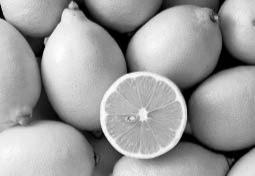








Healthy Tip: You can lower the sodium further in this recipe by using either low sodium broth (which has less sodium than reduced sodium broth) or no-saltadded powdered bouillon reconstituted with water. Another option is to use a homemade saltfree chicken or seafood stock.
Serving size 3/4 cup
Calories 190
Protein 20 g
Carbohydrate 23 g
Dietary fiber 2 g
Total fat 2 g
Saturated fat 0 g
Trans fat 0 g
Cholesterol 40 mg
Sodium 550 mg


No one will believe you when you tell them this soup is low fat, thanks to the creaminess from the evaporated skim milk! This soup is loaded with protein and makes for a hearty meal when paired with a salad and whole grain bread or rolls.
1⁄2 tablespoon canola oil
2 cups chopped onion
1⁄2 cup chopped celery
1⁄4 teaspoon salt
2 tablespoons all purpose flour
Two 12 fluid ounce cans evaporated skim milk
2 cups fat-free, reduced sodium chicken stock
One 16 ounce can fresh crabmeat, rinsed and drained
2 cups frozen sweet corn
2 bay leaves
1⁄81⁄4 teaspoon cayenne pepper
1 teaspoon Old Bay seasoning
2 tablespoons dried chopped chives
Fresh ground pepper, to taste
1. Heat oil in large pot over medium heat. Add onions, celery, and salt. Cook and stir over medium heat until vegetables are softened but not brown.
2. Stir in flour and remove pan from heat. Stir in cans of evaporated skim milk and chicken stock. Return pan to heat and bring mixture to a boil, stirring constantly.
3. Reduce heat. Stir in remaining ingredients. Simmer soup uncovered for at least 10 minutes (longer for better flavor).





Healthy Tip: Foods that have high water content like this broth-based vegetable soup can help you to manage your weight by filling you up on fewer calories.
Serving size 1 heaping cup
Calories 100
Protein 4 g
Carbohydrate 22 g
Dietary fiber 5 g
Total fat 1 g
Saturated fat 0 g
Trans fat 0 g
Cholesterol 0 mg
Sodium 220 mg
Making this classic dish in the crock pot cuts back on the time it takes to prepare. Since this dish contains only vegetables and no meat, the fat and calories remain low.
1 cup water
1⁄2 cup chopped onion
1⁄4 cup chopped green bell pepper
1 cup chopped celery
1 clove garlic, minced
1 pound frozen sliced okra
21⁄2 cups fresh chopped tomatoes, or 1 pound no salt added canned diced tomatoes
2 cups frozen or fresh corn kernels
1⁄4 to 1⁄2 teaspoon hot sauce
1⁄2 teaspoon paprika
2 tablespoons fresh chopped parsley or 1⁄2 tablespoon dried parsley
1⁄2 teaspoon salt
1⁄4 teaspoon black pepper
1. In a medium-size (4- to 6-quart) crock pot, combine all ingredients.
2. Cover and cook on low for 4 hours or until vegetables are tender and hot.



Healthy Tip: Did you know that you can eat the bones packed with canned salmon? The bones are very soft and can be kept whole or mashed between your fingers or with a fork.
Bone bonus: They are a great source of calcium!

Nutrition Facts
Serving size
1 cup
Calories 160
Protein 17 g
Carbohydrate 17 g
Dietary fiber 2 g
Total fat 3.5 g
Saturated fat 0 g
Trans fat 0 g
Cholesterol 45 mg
Sodium 270 mg

Yield: 8 servings

Salmon is a great source of Omega-3 fats, a type of fat that is healthy for your heart. This easy soup is a great way to get more Omega-3 rich fish in your diet!
1 teaspoon canola oil
11⁄2 cups chopped sweet or yellow onion
1 cup chopped celery
2 cups skim milk
2 teaspoons sodium-free chicken granulated bouillon dissolved in 11⁄2 cups boiling water
10 ounce package frozen chopped spinach
14.75 ounce can of no salt added sweet corn, cream style
1 teaspoon dried thyme or 1 tablespoon fresh minced thyme leaves
14.75 ounce can pink or red salmon, drained, skin removed, flaked
Ground black pepper to taste
1. In a 3- to 4-quart sauce pan, heat oil over medium heat. Add onion and celery; sauté 5 minutes or until vegetables are softened.
2. Stir in milk, water with chicken bouillon, spinach, corn and thyme. Simmer 15 minutes.
3. Stir in salmon. Bring back to a simmer and cook until heated through, about 5 minutes.

Many types of cancer can be prevented by making some simple lifestyle changes. In fact, according to the American Cancer Society, one third of cancer deaths are related to poor diet, sedentary lifestyle, and carrying excess weight. The most commonly diagnosed cancers in African American males and females are: prostate, breast, lung, colon and rectal cancers. The information below, as well as information found throughout this book, will help you to take an important step towards a healthier lifestyle and lowering your cancer risk.
Maintain a healthy weight throughout life. Being obese or overweight increases the risk for many cancers, including breast and colon cancer. Obesity and overweight are defined according to Body Mass Index (BMI), which is calculated by using height and weight. Obesity is having a BMI of 30 or above, and overweight is having a BMI of 25-29.9. Maintaining a healthy weight is important not only for reducing cancer risk but also for reducing risk for other chronic diseases like heart disease and diabetes. Here are some simple steps to controlling weight: choose smaller portions, keep a food diary to increase your awareness of how much you are eating, cut back on sugary drinks and higher calorie snack foods, and start to prepare foods in a healthier way.
Adopt an active lifestyle. Physical activity helps to reduce your risk of developing cancer by controlling excess body fat. Activity can also affect hormone levels and strengthen your immune system which are other factors that influence your risk. Adults should aim for 30-60 minutes of moderate to vigorous activity on 5 or more days of the week, aside from everyday activities. Children and adolescents need at least 60 minutes of physical activity per day.

Eat a healthy diet. Build your meals around foods from plant sources including fruits, vegetable, legumes (dried beans and peas), nuts and seeds. Try to eat at least five servings of fruits and vegetables each day. This is easy to do if you include them at all meals and snacks and choose (or modify) recipes to include more fruits and vegetables. Choose whole grains over processed or refined grains. Some examples of whole grains are whole wheat, whole rye, oats, brown rice, whole grain corn meal, whole grain barley and buckwheat. Limit your intake of red meats (beef, pork, lamb, and goat) and processed meats. The term “processed meats” refers to meats preserved by smoking, curing, salting, or the addition of chemical preservatives (luncheon meats, ham, bacon, sausage, hot dogs, etc.)
Limit your intake of alcoholic beverages. Use alcohol in moderation if you choose to drink at all. Moderation means no more than one drink per day for women and no more than two drinks per day for men.
Don’t use tobacco products. Any use of a tobacco product increases your risk of developing cancer.

“Because I know how important our health is to our quality of life, for the past 15 years I have been organizing health workshops in my community. At least six times a year, I have a workshop to promote awareness and to provide information to the community on topics from cancer to depression.”
References and Resources:
1.American Cancer Society, www.cancer.org
2.American Cancer Society. Cancer Facts and Figures for African Americans 2009-2010. Atlanta: American Cancer Society, 2009.
3.American Institute for Cancer Research, www.aicr.org
4.Centers for Disease Control and Prevention. http://cdc.gov/


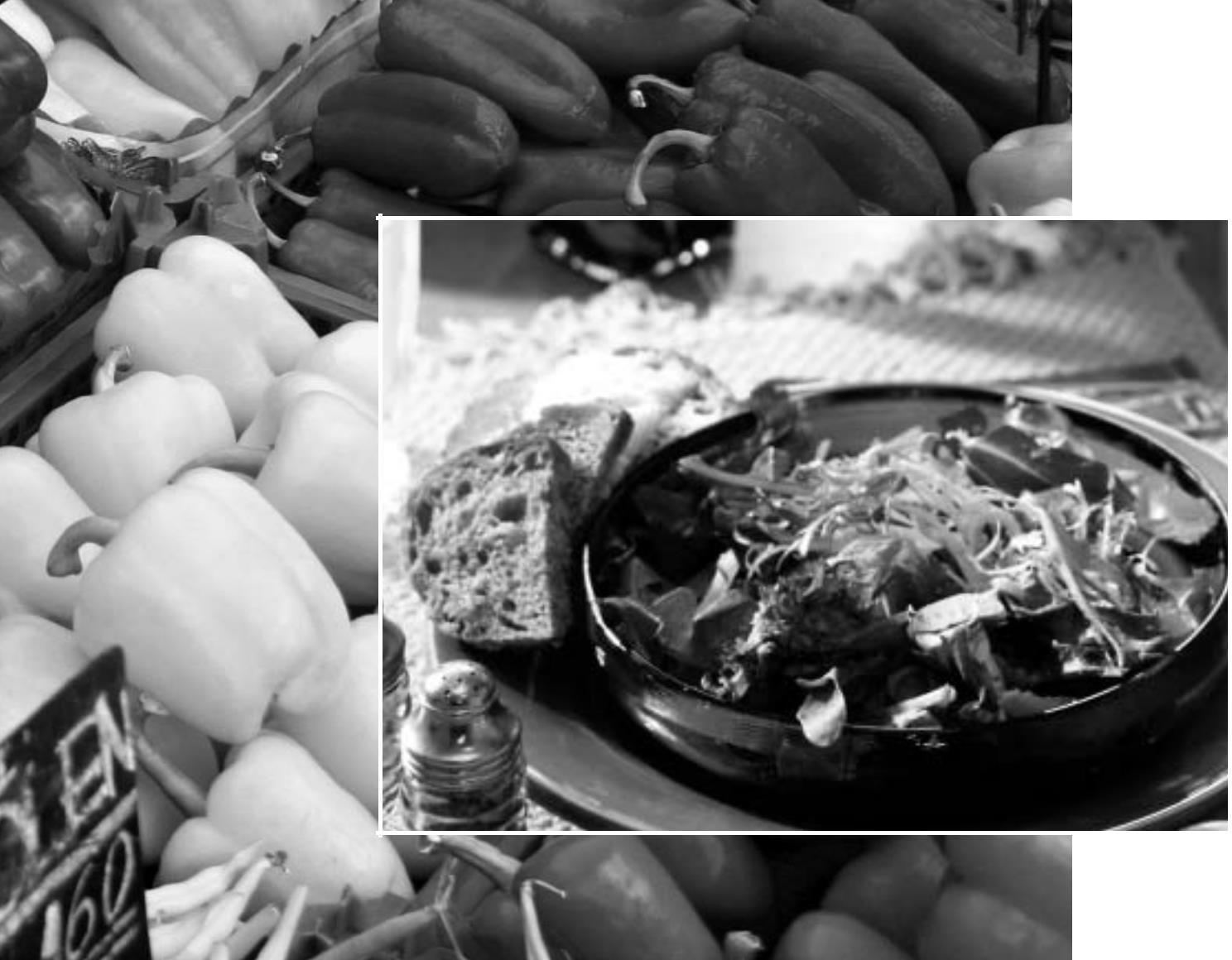





You can use the same soaking and cooking process for other dried legumes. Split peas and lentils do not require soaking. Cooking times will vary with different legumes. Most require 1-2 hours, but some like soybeans take closer to 4 hours to soften.
Serving size 1⁄2 cup
Calories 100
Protein 7 g
Carbohydrate 18 g
Dietary fiber 6 g
Total fat 0 g
Saturated fat 0 g
Trans fat 0 g
Cholesterol 0 mg
Sodium varies with water supply
Cooking black eyed peas from dried form can save you money and allow you to skip the salt that food manufacturers usually add in the canning process. Quick-soaking shortens the cooking time and helps reduce the amount of gas-forming carbohydrates in the peas.
2 cups dry black eyed peas
Water
To quick-soak:
1. Rinse peas several times in cool water. Remove any foreign objects like small pebbles.
2. Place peas in a large saucepot with water to cover 1-2 inches above the peas. Bring to a boil. Boil, uncovered, for 3 to 5 minutes. Turn off heat. Cover pot and allow beans to soak for 1 hour. Drain and rinse peas in cold water. Store in an airtight container in the refrigerator until ready to cook.
To cook:
1. Place soaked peas in a saucepot with at least 6 cups water. Bring to a simmer.
2. Reduce heat and cover pot, almost completely, with a lid. Simmer 30 minutes or until peas are soft but skins still on. Drain water. The peas are now ready to use in your favorite recipe. Store them in airtight containers or sealable bags in the refrigerator (up to 5 days) or freezer.



Add some color and garden fresh flavor with an herb that pairs nicely with potatoes. Some suggestions: dill weed, rosemary, tarragon, oregano, basil, marjoram. Try a different one each time. Start with 1-2 teaspoons fresh chopped herb, added in step 3, and add more as desired after salad has chilled.

Nutrition Facts
Serving size 1
Calories 100
Protein 3 g
Total fat 2 g
Saturated fat 0 g
Trans fat 0 g
Cholesterol 35 mg
Sodium 180 mg
Total carbohydrate 17 g
Dietary fiber 2 g

Yield: 6 servings

The combination of low-fat mayonnaise and non-fat yogurt makes a creamy low-fat dressing for this potato salad. Take this to your next picnic or pot-luck supper as a healthier alternative to the typical potato salad
1 pound white, all purpose potatoes, halved
6 tablespoons low-fat mayonnaise
1⁄4 cup plain, non-fat yogurt
2 teaspoons prepared mustard (such as yellow, brown, stone ground, Dijon-style, other)
1⁄4 teaspoon dry mustard
Dash ground black pepper
Dash turmeric, optional (for extra yellow color)
1⁄2 cup finely chopped celery
1⁄4 cup finely chopped sweet onion
1 large hard-cooked egg, chopped
1 tablespoon minced fresh parsley
1. Steam potatoes over boiling water for 25 minutes or until tender. Transfer to a glass container to cool. Peel skin, if desired.
2. In a small bowl, mix mayonnaise, yogurt, prepared mustard, dry mustard, black pepper and turmeric (if using). Cover and refrigerate.
3. When potatoes are cool enough to handle, peel and dice them. Place potatoes in a large bowl along with celery, onion, egg, and parsley. Add mayonnaise dressing and mix gently. Cover and refrigerate a few hours before serving, if time allows.

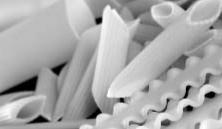

The combination of fresh lemon juice and lemon zest in this recipe helps to “perk up” the other flavors in the salad without the need for salt. Be sure to zest your lemon before squeezing for the juice. Use a lemon zester or fine grater to remove the yellow portion of the skin. Avoid the white portion underneath because it has a bitter taste.


Yield: 4 servings

A great salad which can be eaten either as a side dish or a light meal. Whole wheat pasta and vegetables help to increase the nutrition and fiber, low-fat mayonnaise helps to lower the fat content, and lowsodium canned tuna helps to lower the sodium content.
Dressing:
1⁄3 cup low-fat mayonnaise
1 to 11⁄2 tablespoons
white wine vinegar
1 to 11⁄2 tablespoons
fresh lemon juice
1 teaspoon lemon zest
1⁄4 teaspoon dried basil or 1 teaspoon fresh minced basil, or more to taste, optional
dash garlic powder
dash ground black pepper
Salad:
2 cups cooked whole wheat pasta, such as small to medium shells
One 5 ounce can tuna packed in water, low sodium, drained
1⁄2 cup halved cherry tomatoes
1⁄4 cup chopped green pepper
1⁄4 cup chopped celery
1⁄4 cup finely chopped red onion
1⁄4 cup shredded carrots
2 tablespoons sliced black olives (drain before measuring)
1 tablespoon fresh chopped parsley, optional
1. Whisk together dressing ingredients in a medium bowl.
2. Add salad ingredients to bowl with dressing; toss gently to combine. Cover and chill before serving. Add extra vinegar, lemon juice, basil and spices if desired.


If you don’t like the texture of cottage cheese, you can puree it in a food processor until smooth before combining it with the other cheeses.

Nutrition Facts
Serving size 1
g
Carbohydrate 8 g
Dietary fiber 2 g
Total fat 3 g
Saturated fat 1.5 g
Trans fat 0 g
Cholesterol 55 mg
Sodium 290 mg

Yield: 8 servings
An easy, cheesy low-fat side dish that even the kids will love!
Two 10 ounce packages frozen chopped broccoli
16 ounce container 1% low-fat cottage cheese
2 large eggs beaten or 1⁄2 cup fat-free, cholesterol-free egg substitute
1⁄4 cup all purpose flour
1⁄2 cup shredded reduced fat cheese made with 2% or 1.5% milk
1. Preheat oven to either 350° F or 375° F.
2. Place broccoli in a 11⁄2- to 2-quart microwave-safe casserole dish. Do not add any water. Cover and cook on high a few minutes, just to defrost.
3. Whisk together cottage cheese, eggs, flour, and shredded cheese in a medium bowl. Pour over broccoli.
4. Bake, uncovered, for 45-60 minutes at 350° F or for about 40 minutes at 375° F, or until top seems set and edges are brown.



Yield: 6 servings


To make into a meatless main dish, add cooked or canned, rinsed beans such as black eyed peas or red beans, if desired. You can also use other fresh or frozen greens like kale, mustard greens or turnip greens.

The combination of the red pepper flakes and hot sauce gives these Cajun style greens some kick, while the tomatoes take away any bitter flavor from the greens. Collard greens are rich in nutrients making this a great accompaniment to any meal.
1 tablespoon canola or olive oil
1 large yellow onion, diced (~1 cup)
2 cloves garlic, minced
1 pound frozen chopped collard greens
1⁄2 cup water
14.5 ounce can no-salt-added diced tomatoes, not drained
1⁄2 teaspoon red pepper flakes
1⁄2 teaspoon hot sauce
1. Heat olive oil over medium heat. Sauté onions and garlic until onions are translucent.
2. Add collard greens and water. Cover and cook over medium heat for 6 minutes, uncovering once midway through to stir.
3. Stir in remaining ingredients, cover, and cook for another 6 minutes, stirring occasionally.
Dietary
Saturated fat 0 g
Trans fat 0 g
Cholesterol 0 mg
Sodium 45 mg



If you like the combination of spicy and sweet then you will love this recipe, which offers a nice change from plain baked versions. Sweet potatoes are a great source of nutrients like vitamin A, potassium and fiber.
1 tablespoon packed light brown sugar
1 teaspoon ground cumin
1⁄2 teaspoon garlic powder
1 teaspoon ground cinnamon
1⁄2 teaspoon crushed red pepper flakes
Dash salt
1 pound sweet potatoes (1 large), cut into 1⁄8- to 1⁄4-inch slices (about 31⁄2 cups sliced potatoes)
1 tablespoon canola or olive oil
Cooking spray or 1⁄2 teaspoon oil
1. Preheat oven to 400° F. Combine first 6 ingredients (through salt) in a small bowl.
2. Place potato slices in a gallon size plastic bag. Drizzle oil over potatoes and shake the bag to coat the potato slices. Add the seasoning mixture to the bag and shake the bag to coat the potato slices.
3. Use cooking spray or 1/2 teaspoon oil to lightly grease a large baking
Nutrition Facts sheet or 2 jelly roll pans. Place seasoned potato slices in a single layer on the baking sheet. Bake in preheated oven for 15 minutes or until tender. Serving
Saturated
Trans
Cholesterol 0 mg
Sodium 80 mg




Look for cheddar cheese labeled Reduced Fat. The label might also say what type of milk the cheese is made from. Best choices for limiting saturated fat are those made with fat-free, 1% milk, 1.5% milk and 2% milk. If
sodium is a concern, check sodium content and choose the lower sodium brand.

This version of macaroni and cheese is healthy enough to be included on your family’s table on a regular basis, whereas some traditional versions of macaroni and cheese can have as much as 1,200 calories and 70 grams of fat per serving!
Cooking spray
1 cup dried whole grain or whole grain blend macaroni
3⁄4 cup (3 ounces) grated reduced-fat sharp cheddar cheese
1⁄2 cup fat-free ricotta cheese
1⁄3 cup fat-free sour cream
1⁄4 cup fat-free milk
1 large egg white
1 tablespoon grated Parmesan cheese
1 teaspoon Worcestershire sauce
1⁄2 teaspoon salt-free garlic herb seasoning blend
1 medium plum tomato, cut into 6 slices
1⁄2 slice whole wheat bread, toasted crisp
1 teaspoon grated Parmesan cheese
1⁄4 teaspoon salt-free garlic herb seasoning blend
1. Preheat oven to 375° F. Lightly oil a 1-quart baking dish or 9-inch x 5-inch x 3-inch glass or ceramic loaf pan with cooking spray.
2. Cook pasta according to package directions, omitting salt and oil. Place in a colander and drain well.
3. In a medium bowl, stir together cheddar cheese, ricotta cheese, sour cream, milk, egg white, 1 tablespoon Parmesan cheese, Worcestershire sauce, and herb seasoning blend. Stir in the pasta. Spoon into baking dish. Arrange tomato slices on top.
4. In a small bowl, make bread crumbs with the toasted bread by using fingers to tear toast into very small pieces. Add 1 teaspoon Parmesan and 1/4 teaspoon seasoning blend; mix with a fork or spoon. Sprinkle bread crumbs over the casserole. Lightly spray with cooking spray.
5. Bake, uncovered, for 30-35 minutes, or until heated through and golden brown around the edges.


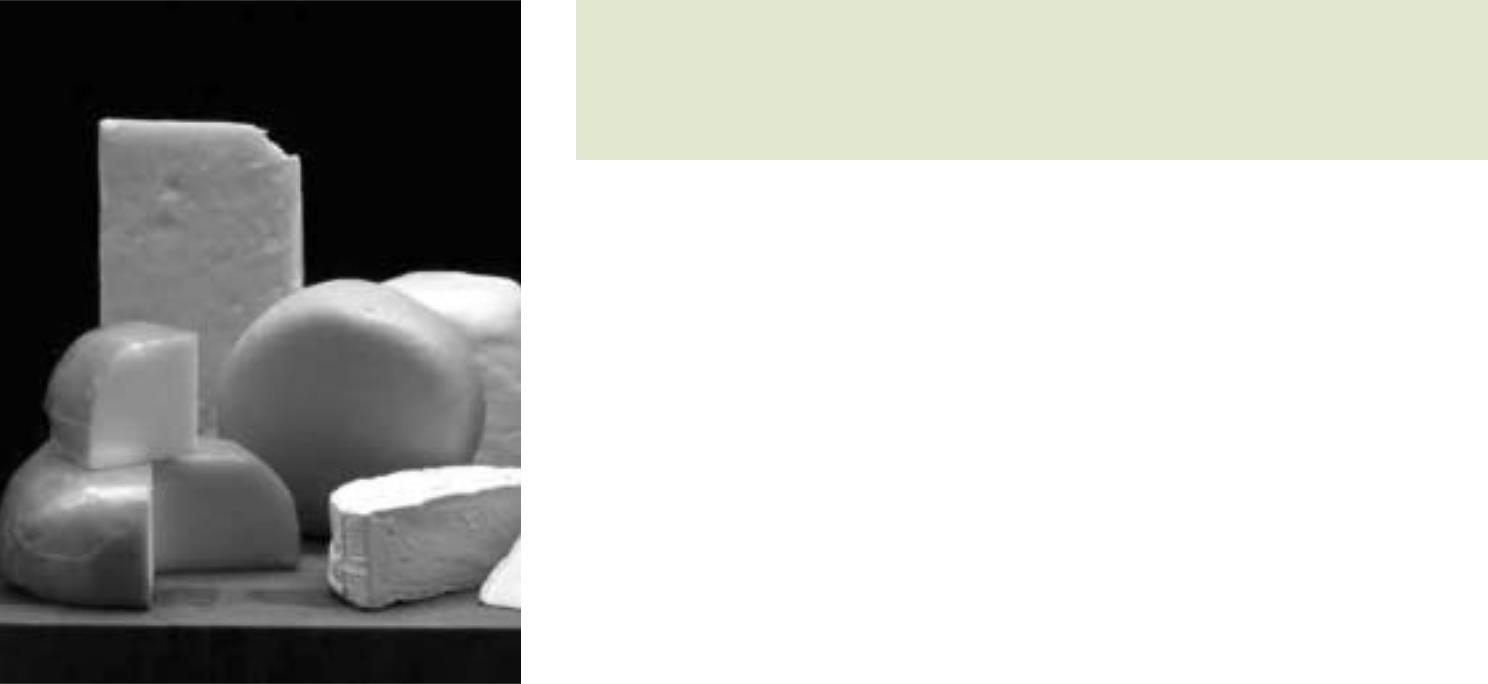
We reduced the fat in this delicious casserole by using lower fat cheese, skim milk and egg substitute, and by omitting butter. A great way to eat nutrient-rich spinach!
1⁄2 cup fat-free, cholesterol-free egg substitute
1 cup skim milk
1 cup white whole wheat flour (or 1⁄2 cup white flour and 1⁄2 cup whole wheat flour)
2 tablespoons grated Parmesan cheese
1⁄2 cup chopped yellow or sweet onion
1 clove garlic, minced (or 1⁄4 teaspoon garlic powder)
1⁄4 teaspoon cayenne pepper
10 ounce package frozen chopped spinach, thawed and squeezed dry
13⁄4 cups shredded reduced fat cheddar or part skim mozzarella cheese (about 7 ounces)
1. Lightly spray a 11⁄2-quart baking dish with cooking spray. Preheat oven to 350° F.
2. In a large bowl, whisk the egg substitute, milk, flour, Parmesan cheese, onion, garlic, and cayenne pepper until combined. Fold in spinach and shredded cheese.
Serving size 1
160
Carbohydrate 16 g
Dietary fiber 3 g
Total fat 6 g
Saturated fat 4 g
Trans fat 0 g
Cholesterol 20 mg
Sodium 250 mg
3. Spoon mixture into baking dish. Bake, uncovered, for 40-45 minutes or until a knife inserted near the center comes out clean.



Being healthy means more than just choosing healthy foods. It is also important to be physically active everyday. Regular physical activity can help to prevent certain diseases and may also help you to manage the conditions that you already have. Here are some of the benefits of being active:
• Decreased risk for type 2 diabetes, high blood pressure, heart disease, and certain types of cancer.
• Improved blood glucose control and cholesterol levels, as well as better management of high blood pressure.
• Improved weight management and muscle tone.
• Increased energy and improved stress management.
• Improved self esteem.
Over time, try to increase daily physical activity. Start slowly and gradually increase time and intensity until you are getting the recommended amount (30-60 minutes per day). Remember that it is an important part of being healthy, so make it a priority. Here are some common issues some may have with exercise, along with suggestions for ways to overcome them:
“I don’t have time”
• You don’t need to do 30 minutes all at once. Try breaking it up into two or three 10-15 minute blocks of time throughout the day.
• Find ways to sneak in physical activity. Park farther away at the mall or grocery store, walk the kids to school, take the stairs instead of the elevator, or take a 10 minute walk over your lunch break.
• Clean the house vigorously or do some yard work.
• Don’t just sit while watching TV. Take the time to lift weights, do sit-ups or push-ups, or walk in place while you are enjoying your favorite shows.
• Schedule “exercise appointments” in your calendar or planner and consider them to be just as important as other appointments.


“It’s too expensive or you need fancy equipment”
• Walking is great exercise and it is free! Mix it up by walking at the mall, different local parks or a local school track. Increase difficulty by running up the bleachers.
• Playground equipment is great for exercising. Try doing pull-ups on the monkey bars, pumping your legs on the swings, or push-ups on a park bench.
• No weights? Use filled water bottles or cans of soup instead of weights. Have fun and get exercise by lifting your small child up and down.
• Find out if your employer offers discounts at any local recreation centers or gyms or if your insurance company provides any reimbursement to cover part of the cost of fitness center memberships.
• Do workout videos at home. You can borrow them from your local library for free. Also check your television since some stations broadcast exercise programs.
“I hate to exercise!”
• Find activities that you enjoy like dancing, swimming, playing a sport, or walking.
• Exercise with a friend or group of friends. Get together to walk and talk or take an exercise class.
• Play with your kids; have fun as a family! Go for family walks, bike rides, or play ball. Mix it up by inventing new games or making up obstacle courses or silly competitions.
Whatever activity you choose to do, it will benefit your health as long as you are safely moving more whenever you can. Remember to start slowly. Don’t get stuck in a rut. Instead, mix up your routine by trying new options to keep your activities interesting and fun.

“My doctor recommended that I start an exercise program after I was diagnosed with arthritis in my hip. So, I began line dancing, and actually won a competition!”
“ I exercise twice a week to maintain a healthy weight and my grandchildren help me by keeping me busy. I love it!”
References and Resources:
1.National Institutes of Diabetes and Digestive and Kidney Diseases. Energize Yourself and Your Family. http://win.niddk.nih.giv/index.htm






Yield: 4 servings


You can also make this with fresh greens if you have them; you just may need to increase cooking time and gradually add more water as needed.

Serve this with one of the bread recipes at the beginning of the book, fruit salad, and fat-free milk or yogurt to make a satisfying meatless meal.
1 tablespoon canola oil
1⁄2 cup chopped onion
1 large clove fresh garlic, chopped (11⁄2 teaspoons)
1 cup water
16 ounce bag frozen chopped collard greens
1⁄4 teaspoon ground black pepper
1⁄2 teaspoon salt
11⁄2 cups of home-cooked (without salt or fat) black eyed peas, or no salt added canned black eyed peas
1. In a medium-large saucepot, heat canola oil over medium-high heat. Sauté onion and garlic for 3 minutes.
2. Add water. Bring to a boil. Add collard greens, pepper, and salt. Stir. Reduce heat to medium. Cover pot and cook for 15-20 minutes.
3. Add peas, stir, cover, reduce heat to low and cook for 5 to 10 minutes or until greens are very tender and peas are heated through.
Trans
Cholesterol
Sodium


Collard greens are easy to grow and very nutritious. They can even be grown during the winter time!





Not all soups labeled 98% fat-free are reduced sodium. Check label carefuly.

This casserole is a great way to get a lot of vegetables in your meal and is easy to prepare. A great idea for “planned leftovers,” so next time you roast a chicken or make brown rice with a meal, make extra and freeze for use in this recipe.
Cooking spray or 1⁄4 teaspoon vegetable oil
3 cups cooked, cubed chicken breasts
24 ounce package mixed vegetables, thawed
8 ounces fresh mushrooms, sliced (about 31⁄2 cups)
2 cups cooked brown rice
10.5 ounce can condensed 98% fat-free, reduced sodium cream of mushroom (or cream of chicken) soup
11⁄3 cups skim milk
2 teaspoons lemon juice
1⁄2 teaspoon curry powder
1 cup shredded reduced fat sharp cheddar cheese (4 ounces)
1. Preheat oven to 375° F. Use cooking oil or 1⁄4 teaspoon oil to grease a 9-inch x 13-inch baking dish.
2. Combine chicken, mixed vegetables, mushrooms, and rice in a large mixing bowl or stock pot.
3. Whisk together soup, milk, lemon juice and curry powder. Pour over chicken mixture and use a large spoon to mix.
4. Spoon casserole mixture into the baking dish. Sprinkle cheese evenly over the top.
5. Bake, uncovered, for 30 minutes.

Try this recipe using other vegetables. For example, instead of mixed vegetables, use 1 pound of fresh broccoli, cut into bite-sized pieces and steamed until bright green and tender-crisp. You might also try using different varieties of frozen vegetables like peas and carrots or other vegetable blends. Check the label since some frozen vegetables may have added salt.


This recipe is well worth the effort to prepare, especially since traditional versions of fried chicken can contain an average of 300 calories and 20 grams of fat per piece, not to mention the almost 1,000 mg of sodium! This version has all of the flavor of the original with less fat and calories since it is baked instead of fried.
1⁄2 cup 1% low-fat buttermilk
1 tablespoon Dijon-style mustard
1⁄2 teaspoon garlic powder
1⁄2 teaspoon hot sauce
4 chicken thighs, skin removed
6 chicken legs, skin removed
Cooking spray
3⁄4 cup whole wheat flour

Nutrition Facts
Serving size 1
Calories 260
Protein 29 g
Carbohydrate 16 g
Dietary fiber 3 g
Total fat 8 g
Saturated fat 2.5 g
Trans fat 0 g
Cholesterol 90 mg
Sodium 400 mg

1 tablespoon paprika
1 teaspoon baking powder
2 teaspoons dried thyme, or
2 tablespoons fresh thyme
11⁄2 teaspoon sage
1⁄4 teaspoon salt
Freshly ground pepper to taste
1. In a shallow glass baking dish, whisk buttermilk, mustard, garlic and hot sauce. Add chicken, turning to coat. Cover and marinate in the refrigerator for 2-6 hours.
2. When ready to cook chicken, preheat oven to 425° F. Line baking sheet with foil, set a wire rack on the baking sheet, and coat it with cooking spray.
3. Place remaining ingredients (whole wheat flour through pepper) into a large sealable plastic bag; shake to combine.
4. Lift one piece of chicken out of marinade and gently shake off any excess marinade. Place piece of chicken into the bag with seasoned flour; close bag and shake to coat chicken. Open bag and lift chicken out, gently shaking off excess flour. Place chicken onto prepared wire rack. Repeat steps with the remaining chicken pieces. Lightly spray tops of chicken with cooking spray.
5. Bake chicken in preheated oven until golden brown and thoroughly cooked, about 45-55 minutes.

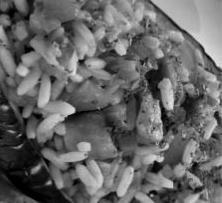

For a little more color, add finely chopped red pepper along with the other vegetables. Ground turkey can be substituted for the ground beef.
Serving
Carbohydrate 27 g
Dietary
Saturated fat 3 g
Trans fat 0 g
Cholesterol 50 mg
Sodium 250 mg

Yield: 6 servings

A flavorful one-pot meal that contains much less sodium than storebought boxed rice dishes. Pair with fresh vegetables or salad and fruit to make a complete meal.
1 pound lean (90%-96% lean) ground beef
1 teaspoon olive or canola oil
1 cup chopped onion
3⁄4 cup chopped celery
1 cup chopped green onions, including tops (about 1 bunch, or 4-5 large scallions)
2 tablespoons chopped fresh parsley (or 1 tablespoon dried)
1 clove garlic, minced
1⁄2 teaspoon dried thyme
1⁄2 teaspoon dried basil
3 cups plain cooked (no salt or fat added) brown rice
1⁄4 teaspoon salt
1⁄2 teaspoon hot sauce
1⁄4 teaspoon cayenne pepper
1 cup reduced sodium chicken broth
Fresh ground pepper to taste
1. In a large deep skillet, cook ground beef until no longer pink, over medium-high heat. Drain excess fat (but don’t rinse pan) and set meat aside.
2. Return pan to stove and add oil, reduce heat to medium. Add onions, celery, green onions, parsley, and garlic and cook until tender.
3. Stir in thyme, basil, rice and cooked meat. Mix well.
4. Add salt, hot sauce, cayenne, chicken broth, and fresh ground pepper. Cook and stir just until rice and meat are heated through and some of the chicken broth is absorbed.

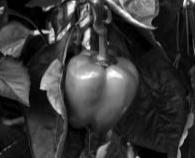

To lower the sodium of this recipe, use no salt added canned black eyed peas or home cooked black eyed peas with no salt or fat added. Or, use fresh lean ground turkey breast instead of sausage and add your favorite salt-free sausage seasonings, like sage and thyme.

Nutrition Facts
Serving size
Calories 340 Protein 18 g
Carbohydrate 50 g
Dietary fiber 9 g
Total fat 8 g
Saturated fat 1.5 g
Trans fat 0 g
Cholesterol 25 mg
Sodium 600 mg


This hearty dish is quick to prepare and makes for a very satisfying meal. Serve with low-fat accompaniments like fresh cut vegetables or a side salad and fresh fruit for balance and color.
1⁄2 cup uncooked instant brown rice (or 1 cup cooked brown rice without added fat or salt)
1 teaspoon canola or olive oil
2 small links or 3 ounces lean breakfast turkey sausage, sliced into 1⁄2-inch pieces
1⁄2 medium red bell pepper, finely chopped (1⁄2 cup)
1 medium jalapeño pepper, seeded and finely chopped (2-3 tablespoons)
15.5 ounce can black eyed peas, rinsed and drained (11⁄2 cups drained)
1⁄2 cup water
1. Prepare rice using the package directions, omitting salt and any added fats.
2. Meanwhile, in a medium nonstick skillet, heat the oil over medium-high heat, swirling to coat the bottom. Cook the sausage for 3 minutes, or until browned, stirring often.
3. Stir in the red pepper and jalapeño. Cook for 1 minute.
4. Stir in the black eyed peas and water. Cook for 2 minutes. Remove skillet from the heat. Cover and let stand for 5 minutes. Stir in the rice. Serve


A variation on a Cajun classic but with less fat thanks to panfrying the fish in a small amount of oil rather than deep frying. Using a lighter fish, like tilapia, helps to cut the fat and calories further. Serve this with light side dishes like steamed vegetables or fruit.

Yield: 4 servings
1⁄3 cup whole grain yellow corn meal
1 tablespoon all-purpose flour
11⁄2 teaspoons paprika
1⁄4 to 1⁄2 teaspoon crushed red pepper flakes
1⁄8 teaspoon garlic powder
1 to 2 large egg whites
1 pound catfish fillets, or other white fish like tilapia, sole, or flounder, preferably 1⁄2- to 3⁄4-inch thick, cut into 4 single fillets or pieces
2 teaspoons canola or other vegetable oil
1⁄2 lemon, cut into 4 wedges
1. Combine first 5 ingredients in a shallow dish.
2. Whisk egg white in a separate shallow dish. Start with one egg white and add another if needed.
3. Dip each fish fillet in cornmeal mixture, then in egg white, and then again in cornmeal mixture. Place fillets on a plate, cover with plastic wrap, and refrigerate for 10-15 minutes.
4. Heat oil over medium-high heat in a large nonstick skillet. Add fillets and cook over medium-high heat, 3 minutes per side, for thin (1⁄2-inch thick) fillets. For thicker (3⁄4-inch) fillets, cook over medium heat, 4-5 minutes per side. Fish is done when flesh turns opaque and flakes easily with a fork.
5. Serve with lemon wedges.






In this recipe we boiled the leftover marinating liquid to kill any bacteria that may be present from the raw meat. Never baste or serve a liquid that was used on raw meat unless it has been heated to boiling.
Using pork chops with no added salt or sodium solution.
Serving size 1
Calories 240
Protein 26 g
Carbohydrate 19 g
Dietary fiber 1 g
Total fat 6 g
Saturated fat 2 g
Trans fat 0 g
Cholesterol 60 mg
Sodium 55 mg
Store-bought marinades are often high in sodium. The acid from the orange juice in this marinade tenderizes the meat and gives great flavor without the need for added salt. Try some different grains, like cooked barley or wild rice, as a side dish along with steamed broccoli or other green vegetable.
4 lean boneless pork chops, e.g. boneless top loin chops, ~4 ounces each
1 cup unsweetened orange juice
1 teaspoon dry mustard
1⁄8 teaspoon garlic powder
1⁄8 teaspoon ground ginger
1 tablespoon brown sugar
4 teaspoons cornstarch
15 ounce can Mandarin oranges, drained (~11⁄3 cups)
1. Place pork chops in a gallon sized sealable bag. In a small bowl whisk together orange juice, dry mustard, garlic powder, ginger, brown sugar, and cornstarch. Pour sauce over pork chops and seal bag. Marinate in the refrigerator for 30 minutes.
2. When ready to cook pork chops, preheat broiler or grill. Remove pork chops from marinating liquid and pour liquid into a small sauce pan. Heat liquid over medium heat until boiling and thickened. Turn heat to low; add Mandarin oranges, stir, cover, and keep warm until serving.
3. Broil chops (in a sprayed baking dish or broiler pan) or grill for 7-10 minutes per side, until meat thermometer reads 170° F. To serve, spoon sauce over pork chops.



Being healthy is about more than diet and lifestyle habits. One fairly common way that people can become ill is by not handling perishable foods properly. Food poisoning can affect anyone and the symptoms range from mild to very severe. Events like outdoor picnics, holiday gatherings, and potluck suppers can put you at an even greater risk since these are all events where foods may be exposed to dangerous temperatures for an extended period of time.
• Shop for refrigerated and frozen items toward the end of your shopping trip.
• Check the “sell by” date on all foods.
• Check that eggs are not cracked or broken.
• Make sure that seals and wrappers are not broken, torn, or leaking.
• Double wrap raw meat, poultry, fish, and seafood so juices cannot leak. Keep these raw items separate from the other foods in your grocery cart and bag them separately at check out.
• In hot weather, transport perishable groceries home in a cooler with ice.

Clean
• Wash hands with soap and hot water before and after handling food.
• Wash all fresh fruits and vegetables under clean running water. Use a clean vegetable brush to scrub the outer surface of firm produce like potatoes, carrots, celery, apples, pears, and melons before cutting them.
Separate
• Avoid cross-contamination. Wash cutting boards, knives, and countertops with hot, soapy water after each use for each type of food. Use separate cutting boards for fresh produce and raw meats, poultry, fish, and seafood.
• Use separate plates and tools for handling raw and cooked meat, poultry, fish, and seafood.
Cook
• Use a clean cooking thermometer to test for proper internal temperatures. Recommended minimum temperatures are below.
145° F: beef, lamb, and veal steaks/roasts
160° F: ground beef, veal, and lamb; all pork cuts; egg dishes
165° F: ground turkey and chicken; casseroles; hot dogs
170° F: chicken and turkey breasts
180° F: chicken and turkey whole bird, legs, thigh, and wings


• Check for the signs that show fish and seafood are completely cooked. Fin fish: meat should be opaque and flakes easily with a fork.
Shrimp, lobster, crab: shell turns red and flesh becomes opaque
Scallops: meat should turn milky white or opaque and firm
Clams, mussels, oysters: shells open
• Keep hot foods hot (above 140° F), by using heating elements, warming trays, etc.
Chill
• Use appliance thermometers to make sure that your refrigerator temperature stays at 40°F or below and your freezer temperature stays at 0°F or below.
• Never thaw raw meat at room temperature. Place frozen meat in the refrigerator the day before to thaw. You can also run cool water over wrapped, frozen meat or defrost in the microwave, but only if meat will be cooked immediately.
• Transport perishable goods in a cooler with adequate frozen gel packs or ice. Pack raw meats, poultry, fish, and seafood in sealed containers and in a separate cooler. Other perishable foods that must be kept cold include milk, cheese, eggs, deli meats, prepared salads, most vegetables, ripe fruit, cut-up fruit, custard, cream pies, and cakes with whipped cream or cream cheese frosting.
• Keep perishable foods chilled until just before serving. For large group picnics, pack a few small serving containers of an item instead of one large one. Serve one container at a time, keeping the backup in the cooler until needed.
• Discard foods left out for one hour in 90° F or higher temperature, for two hours or more at moderate temperatures, or if flies have been making a tasty meal of it. If in doubt, throw it out!
References and Resources:
1.Gateway to government food safety information. www.foodsafety.gov
2.Partnership for Food Safety Education. www.fightbac.org
3.USDA Meat & Poultry Hotline: 1-888-MPHotline (1-888-674-6854)
4.FDA Food Safety Hotline: 1-888SAFEFOOD (1-888-723-3366)






These fried apples get most of their sweetness from apples, unsweetened juice, and cinnamon. And they are low in fat. Serve these alone as a dessert or side dish, or use as a topping for pancakes!

1 cup unsweetened apple juice
2 teaspoons packed light brown sugar
2 teaspoons cornstarch
1⁄2 teaspoon ground cinnamon
4 teaspoons soft, tub margarine that contains 58%-64% vegetable oil and no trans fat
4 medium apples (11⁄4 pounds), cored and sliced into 1⁄8- to 1⁄4-inch slices (about 5 cups slices)
1. Combine apple juice, sugar, cornstarch and cinnamon in a liquid measuring cup. Set aside.
2. Melt margarine in a large nonstick skillet over medium to medium-high heat. Add apple slices and sauté, turning slices over often, until apple slices are softened.
3. Pour liquid mixture over apples. Stir and continue cooking until liquid simmers and begins to thicken. Lower heat to medium-low. Cook and stir for another minute or two.
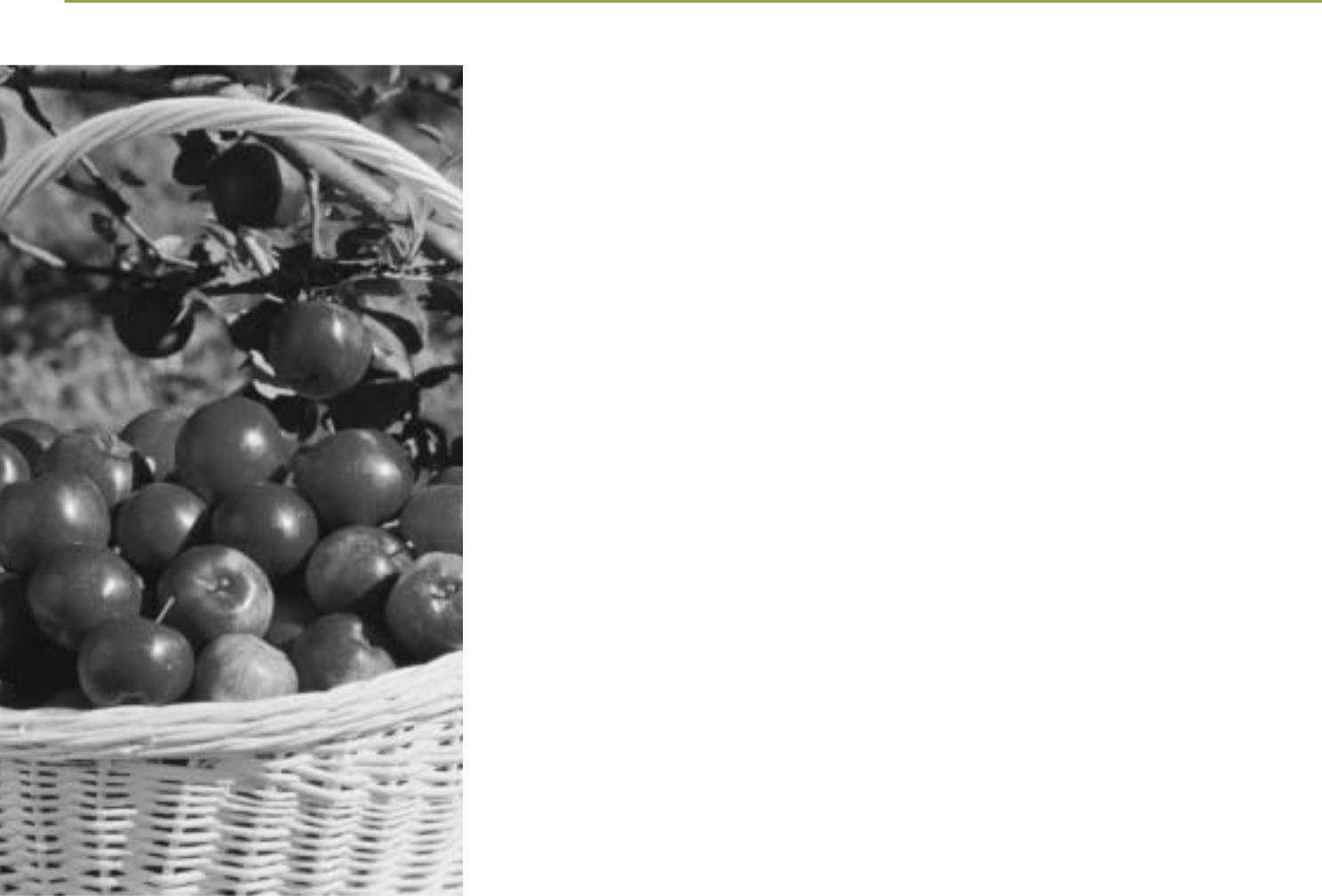


Yield: 8 servings
We slashed the calories, total fat, and saturated fat from an ambrosia fruit salad made with sour cream and coconut. We also offer some ideas to help you create your own fabulous, family favorite fruit salad.

1 cup fresh pineapple tidbits
1 cup mandarin orange segments
1 cup halved or quartered (if large) fresh strawberries
1 cup seedless grapes, whole or halved
1. Combine fruit in a large serving bowl.
1 cup nonfat vanilla yogurt, sweetened or artificially sweetened
1⁄2 teaspoon coconut extract
1⁄2 cup mini marshmallows

2. Stir extract into yogurt, and then add yogurt to the fruit, stirring gently. Cover and refrigerate.
3. Fold in marshmallows just before serving.


You can really be creative with this salad! Just mix up the homemade coconut flavored yogurt “dressing” or choose a favorite store-bought fat-free or low-fat flavored yogurt, with or without added sugar or artificial sweeteners. Mix the “dressing” with 4 cups of fruit – your choice of fruit. Think colorful. Think seasonal. Use fresh fruits when in season and canned, unsweetened fruits when out of season. Toss in a few mini marshmallows and/or toasted chopped nuts for a little extra pizzaz. Here are some fresh fruit combinations that offer a nice blend of color, flavor and texture:
• Pineapple tidbits, diced mango, halved grapes, sliced kiwi
• Strawberries (whole or sliced in half lengthwise), blueberries, diced apple, diced or sliced peaches
• Diced or sliced nectarine, blueberries, raspberries, green grapes


• When measuring cocoa powder and whole grain flours (like the white whole wheat flour in this recipe), always spoon the cocoa and flour into measuring cups and level with a straight-edged spatula. Do not pack the ingredients into the cups.
• For longer storage, cut and freeze brownies in an air-tight freezer container or freezer quality sealable bags. Label with date; use within two months for best quality.
Healthy Tip: White whole wheat flour has a lighter color and milder flavor than standard whole wheat flour, but very similar nutritional value.

Nutrition Facts
Serving size 1
Calories 110
Protein 2 g
Carbohydrate 21 g
Dietary fiber 2 g
Total fat 3.5 g
Saturated fat 0.5 g
Trans fat 0 g
Cholesterol 0 mg
Sodium 80 mg


These brownies are so moist and fudgy that you would never know they are made with whole grain flour! They are also lower in fat than traditional versions and contain less sodium than brownies made from boxed mixes.
Cooking spray
13⁄4 cups white granulated sugar
1⁄2 cup fat-free, cholesterol-free egg substitute
1⁄3 cup canola oil
1⁄2 cup unsweetened applesauce
2 teaspoons vanilla extract
3⁄4 cup unsweetened dry cocoa powder
1 cup white whole wheat flour or whole wheat flour
1 teaspoon baking powder
1⁄2 teaspoon salt
1. Preheat oven to 350° F. Lightly oil a 13-inch x 9-inch metal pan with cooking spray.
2. In a large bowl, whisk together sugar, egg substitute, oil, applesauce, and vanilla until well-blended and smooth.
3. Add cocoa and whisk until blended and smooth.
4. Add flour, baking powder, and salt; beat well with a spoon.
5. Pour batter into prepared pan and spread evenly. Bake for 19-20 minutes or until toothpick inserted into center comes out clean. Cool in pan on wire rack. Cut with a plastic knife. Best if eaten within 2 days.

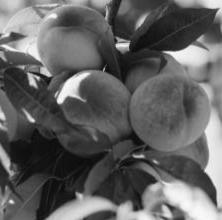

When peaches are in season, try

this with fresh peaches. Just wash, peel, remove the pit, slice, and measure 4-5 cups.

Yield: 9-12 servings

This lighter version of peach cobbler may not be exactly the same as the traditional, but give it a try you might find that you love this version all the same!
Filling
Three 15 ounce cans sliced peaches in pear juice, drained and juice reserved (~4-5 cups drained peach slices)
1⁄3 cup reserved pear juice, or unsweetened white grape pear, white grape, or apple juice
1 tablespoon lemon juice
1 tablespoon white sugar
1 tablespoon cornstarch
1⁄2 teaspoon ground cinnamon
1⁄4 teaspoon ground nutmeg
1. Preheat oven to 375° F.
Topping
1 cup white whole wheat flour (or 1⁄2 cup each of white flour and whole wheat flour combined)
2 tablespoons white sugar
11⁄2 teaspoons baking powder
3 tablespoons soft, tub margarine that contains 58%-64% vegetable oil and no trans fat 1⁄2 cup skim milk
2. Prepare filling. Pour juices into a 2-quart saucepan. Whisk in sugar, cornstarch, cinnamon, and nutmeg. Heat and stir over medium heat until mixture just begins to thicken. Add peaches and increase heat to mediumhigh. Stir and cook until mixture begins a slow boil. Cook another 30 seconds. Pour peach mixture into an ungreased 2-quart baking dish.
3. Prepare topping. In a medium bowl, mix flour, sugar, and baking powder. Cut in margarine with a fork until mixture is a bit crumbly. Stir in milk. Drop batter by the tablespoonfuls over the peaches – about 12 tablespoonfuls (3 rows of 4).
4. Bake, uncovered, in preheated 375° F oven for 25 minutes or until toothpick inserted into topping comes out clean and filling is bubbly. Serve warm or cold. Store covered in the refrigerator.



• Bake extra sweet potatoes so you have some on hand for this recipe. Use a food
processor with steel blade attachment, electric hand mixer, or potato masher to mash the potatoes. If you have more mashed potatoes than needed for the recipe, heat and eat as part of a meal or snack, or add to pancake or muffin mix as you would canned pumpkin.
• Refrigerate remaining canned evaporated milk in a clean jar and use within one week. Try it as a healthy alternative to coffee creamer, or add it to
boost the nutrition of oatmeal, creamed soup, smoothies, or mashed potatoes.
Serving size 1
Calories 220
Protein 5 g
Carbohydrate 35 g
Dietary fiber 3 g
Total fat 6 g
Saturated fat 1 g
Trans fat 0 g
Cholesterol 25 mg
Sodium 240 mg


Using a home-made graham cracker crust instead of a traditional pie crust, evaporated skim milk, and egg whites to replace a whole egg helps to make this pie much lower in fat and calories. This is one nutrient-rich dessert that won’t weigh you down!
Crust:
9 whole low-fat graham crackers (1 cup + 2 tablespoons crumbs)
1⁄4 cup soft, tub margarine that contains 58%-64% vegetable oil and no trans fat
2 tablespoons white sugar
Filling:
1 large whole egg
2 large egg whites
2⁄3 cup white sugar
1 teaspoon ground cinnamon
1⁄2 teaspoon ground nutmeg
11⁄2 teaspoon vanilla extract
1⁄2 cup canned evaporated skim milk
1.5 pounds fresh sweet potatoes (2 medium), baked, peeled and mashed (2 cups)
1. Preheat oven to 350° F. Make crust. Break graham crackers into several pieces and put into the bowl of a food processor with steel blade attachment. Process until crackers become crumbs. [Alternatively, put crackers into a sealable gallon bag and crush into crumbs with a rolling pin.] Put crumbs into a small bowl. Add melted margarine and sugar. Mix thoroughly with a fork. Firmly press crust mixture into the bottom and sides of a 9-inch glass pie pan. Bake on the middle rack of preheated oven for 7 minutes. Set pie crust aside on a heat-resistant surface.
2. Make filling. In a large bowl, beat egg, egg whites, sugar, cinnamon, nutmeg and vanilla with an electric mixer until all ingredients mixed well. Add milk and mashed sweet potatoes. Beat on low speed until smooth. Pour into pie crust.
3. Bake pie on middle rack in preheated oven for 55-60 minutes or until knife inserted into center comes out clean. Cool pie on rack. Store, covered, in refrigerator.